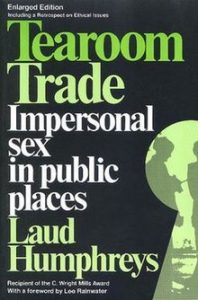BERA Guidelines
The BERA guidelines stand for the British Educational Research Association and where created in 2011 by a charity run organization with the aim to encourage a fair environment in which research and investigations can take place.
 The BERA guidelines where set out to ensure the safety of all participants and researchers during investigations by setting the guidelines and enforcing disciplinary actions if these guidelines were not met (BERA, 2014).
The BERA guidelines where set out to ensure the safety of all participants and researchers during investigations by setting the guidelines and enforcing disciplinary actions if these guidelines were not met (BERA, 2014).
As we look at cases throughout history we see that many researchers have gone against human rights in the name of science; these guidelines ensure that this does not happen again.
Risk of Harm
BERA guidelines state in section 9 that “individuals should be treated fairly, sensitively, with dignity, and within an ethic of respect and freedom”. In the same section it later states that “this ethic of respect should apply to both the researcher themselves and any individual participating” (BERA,2011)
 In regards participants this is ensuring that they are safe throughout the entire process and that they know and understand what they are meant to be doing and when they are meant to be doing it. It is to also ensure that they are not subject to any emotional, physical, mental, or psychological harm.
In regards participants this is ensuring that they are safe throughout the entire process and that they know and understand what they are meant to be doing and when they are meant to be doing it. It is to also ensure that they are not subject to any emotional, physical, mental, or psychological harm.
When we look at the Milgram case we see that there was a lack of concern in the risk of harm towards to participants leading to many forms of harm presenting themselves in different ways.
This also applies to the researcher. They must ensure that at all points during the investigation that they are not endangering themselves. One way the researcher could be harmed during an investigation is physical threat or abuse by participants. This can be prevented by ensuring that the researcher is not alone during an investigation with a participant (Ethics Guide Book, Unknown).
Informed Consent
In sections 10 and 11 of the BERA guidelines, it is made clear that the participants must give “voluntary informed consent” and must also “understand the process in which they are engaging” (BERA, 2011).
Informed consent must be given before any investigation can take place. This is to ensure that the participants have a full understanding in what they are participating in. This can be done in the form of a Participant Information Sheet (also known as a PIS). This PIS should clearly lay out what will happen during the investigation, the participants rights during the investigation and any other information that is important. This should be signed clearly by the participant to indicate that they are happy with taking part in the investigation.
 In some cases, the researcher may withhold information from this participant. This is also known as deception. If a researcher has been deceptive during an investigation they must provide a debrief afterwards to the participant.
In some cases, the researcher may withhold information from this participant. This is also known as deception. If a researcher has been deceptive during an investigation they must provide a debrief afterwards to the participant.
Deception can be used as a matter of social importance. This was shown in the case of Laud Humphreys. Although he used deception, his findings during the investigation resulted in a decrease of men being arrested for taking part in homosexual activity (UCSB SexInfo, 2017).
Another case where deception was used, was during the Piliavin and Piliavin Experiment. This deception was towards the public; however, this was done in an attempt to get a more accurate result. The public were made aware of the study after it had taken place (Shuttleworth, 2017). It was also called the Good Samaritans study (Piliavin, Rodin & Piliavin, 1969)
Invasion of Privacy
 During any social research, the researcher must be mindful of what they are asking the participant. The researcher must ensure that the participant feels comfortable throughout the investigation. The dictionary definition of intrusive is “someone or something that invades personal space, that becomes too involved or that comes too close without being invited.” (Your Dictionary, 2017). One way a participant may not feel comfortable is by asking questions seen as intrusive. These questions could be related to a participant’s personal life or could be inappropriate.
During any social research, the researcher must be mindful of what they are asking the participant. The researcher must ensure that the participant feels comfortable throughout the investigation. The dictionary definition of intrusive is “someone or something that invades personal space, that becomes too involved or that comes too close without being invited.” (Your Dictionary, 2017). One way a participant may not feel comfortable is by asking questions seen as intrusive. These questions could be related to a participant’s personal life or could be inappropriate.
To prevent any intrusion during an investigation, the researcher must explain to the participant during the informed consent stage of the manner of questions that will be asked during an investigation.
The Tearoom Trade investigation gives us an example of a massive invasion of privacy (Humphreys, 1976). The men involved during the investigation had not given informed consent and did not know that they were involved in an experiment. Although the investigation led to a good benefit, this also put the men involved in danger. At the time, homosexual activity was illegal and by Humphreys taking participants personal information, this could have led to the participants being in danger (UCSB SexInfo, 2017).
Confidentiality
In sections 25-28 of the BERA guidelines it states that a participant has the right to confidentiality throughout an investigation. They also have access to any information regarding them during the investigation (BERA,2011). This means that they can verify all documentation that is taken on them.
 By having the right to confidentiality during an investigation, this can protect a participant’s identity. This could also encourage more truth when answering.
By having the right to confidentiality during an investigation, this can protect a participant’s identity. This could also encourage more truth when answering.
When a participant starts an investigation, they are required to sign an informed consent form. To prevent a participant’s identity being compromised during written responses, it is required that the informed consent is separate to any answers.
All data kept in a digital format must be kept in accordance to the Data Protection Act 1998 which provides protection over any online documentation.
Withdrawal
Section 15 of the BERA guidelines state that at any time during an investigation a participant has the right to withdraw. This can be for any reason. The researcher must ensure they have made the participant aware of the right before an investigation takes place (BERA, 2011).
During any examples of the participant withdrawing, the researcher must review their actions. This is to ensure that they were not a contributing factor to the participants withdrawal.
 If a contract has taken place where it is required for a participant to take place in the investigation (for example in a workplace), the researcher may seek a third party to review the contract and the investigation if the participant must re-engage in the investigation (BERA, 2011).
If a contract has taken place where it is required for a participant to take place in the investigation (for example in a workplace), the researcher may seek a third party to review the contract and the investigation if the participant must re-engage in the investigation (BERA, 2011).
During the Milgram investigation, the researcher in the room could have made the participants believe that they did not have the right to withdraw. This was done by using phrases like “please continue” or “the investigation must carry on”. It was not made clear to the participants that they had the right to withdraw at any point during the experiment (McLeod, 2007). During this investigation it was not explained prior to the participants that they had a right to withdrawal. This is also another use of deception during this case.
Vulnerable People
If a vulnerable person is taken part in an investigation, the BERA guidelines state that the researcher must ensure that the participant must have a full and clear understanding during the investigation. In sections 16-21, the BERA guidelines go into depth around the requirements when any research is done involving vulnerable people. This is to ensure their safety at all points (BERA, 2011).
Children
 When participating in an investigation involving children, the child’s best interest is at the front of the investigation. This is to ensure their safety. An investigation involving a child is normally done at a safe place for the child (normally a school) and the researcher must have the consent of the child, the child’s guardian and if the investigation is taking place in a school, the consent of the head teacher (BERA, 2011).
When participating in an investigation involving children, the child’s best interest is at the front of the investigation. This is to ensure their safety. An investigation involving a child is normally done at a safe place for the child (normally a school) and the researcher must have the consent of the child, the child’s guardian and if the investigation is taking place in a school, the consent of the head teacher (BERA, 2011).
An example of when the ethical guidelines where not followed was in the case of Little Albert (1920). During this case the researcher, John Watson, purposely caused fear on the child and put the child’s mental and psychological health in danger (MAGGIE, 2008).
Mentally Ill
When participating in research that involves participants with mental health issues it must be ensured that the researcher is not causing a distress to the participant. They must also ensure that at no point the participant is put in a situation that could increase the effects of a mental illness.
Disabled
 When a participant has a disability, it must be ensured that they have a full understanding of what they are involved in. The researcher must ensure their safety throughout. They must have consent from not only the participant, but a career of the participant (dependant on the extent of the disability).
When a participant has a disability, it must be ensured that they have a full understanding of what they are involved in. The researcher must ensure their safety throughout. They must have consent from not only the participant, but a career of the participant (dependant on the extent of the disability).
Participants must ensure that they make the researcher aware of any disabilities before an investigation takes place.
Elderly
Much like the others, participants who are elderly must be kept safe at all times. They must have an understanding of what is expected, and they must be aware of what they are going to be doing.
Others
Other participants who could be classed as vulnerable could be prisoners/ criminals and victims. It must be ensured that they are kept safe and at all times are aware of their rights during an investigation.
Prevention of Harm
 The BERA guidelines state that the well being of a participant is taken into consideration at all points during an investigation.
The BERA guidelines state that the well being of a participant is taken into consideration at all points during an investigation.
Ethics are used during investigations to prevent any risk of harm to the participants or to the researcher.
During the Milgram investigation, all four forms of harm where found within participants after the investigation. To start with, one participant had to be taken to hospital during the investigation after suffering a stroke due to stress. The majority of other participants suffered with several forms of mental, psychological and emotional harm during this investigation (McLeod, 2007).
Physical
Any actual physical harm done to a person. This could result in injuries.
Regarding the Milgram investigation, one made had to be rushed into hospital after suffering a stroke due to the mass amounts of stress he was put under.
Mental, Psychological and Emotional
Any mental, psychological or emotional harm is anything that affects the brain and a person’s mentality. This could be by effecting a person’s emotions, or mental wellbeing.
In the Milgram case, all participants were put under stress. There could have also been many long-term issues to the participants mentality.
Consequences
 In section 44 of the BERA guidelines, it lays out forms of misconduct during an investigation. At any point if misconduct takes place, or the BERA guidelines are not followed, the researcher can be withdrawn from the investigation (BERA,2011).
In section 44 of the BERA guidelines, it lays out forms of misconduct during an investigation. At any point if misconduct takes place, or the BERA guidelines are not followed, the researcher can be withdrawn from the investigation (BERA,2011).
Within Hull College, if the BERA guidelines are not followed during an investigation, the student (or researcher) can be removed from the course and the college.
References
BERA (2011) Ethical Guidlines For Educational Research [Online] Available at https://www.bera.ac.uk/wp-content/uploads/2014/02/BERA-Ethical-Guidelines-2011.pdf?noredirect=1 (Accessed: 12/10/2017).
BERA (2014) Ethical Guidelines for Educational Research [Online] Available at https://www.bera.ac.uk/researchers-resources/publications/ethical-guidelines-for-educational-research-2011 (Accessed: 12/10/2017).
Ethics Guide Book (Unknown) Risks to researchers [Online] Available at http://www.ethicsguidebook.ac.uk/Risks-to-researchers-68 (Accessed: 17/10/2017).
Humphreys, L (1976) Tearoom Trade: Impersonal Sex in Public Places (Observations), New Jersey, Aldine Transaction.
MAGGIE (2008) Top 10 Unethical Psychological Experiments [Online] Available at http://listverse.com/2008/09/07/top-10-unethical-psychological-experiments/ (Accessed: 12/10/2017).
McLeod, S (2007) The Milgram Experiment [Online] Available at https://www.simplypsychology.org/milgram.html (Accessed: 12/10/2017).
Piliavin, Rodin & Piliavin (1969) ‘GOOD SAMARITANISM: AN UNDERGROUND PHENOMENON?’, Journal of Personality and Social Psychology , vol. 13, no. 4, pp. 289-299.
Shuttleworth, M (2017) Deception and Research [Online] Available at https://explorable.com/deception-and-research (Accessed: 12/10/2017).
UCSB SexInfo (2017) The Tearoom Trade [Online] Available at http://www.soc.ucsb.edu/sexinfo/article/tearoom-trade (Accessed: 12/10/2017).
Your Dictionary (2017) Intrusive Definition [Online] Available at http://www.yourdictionary.com/intrusive (Accessed: 12/10/2017).

